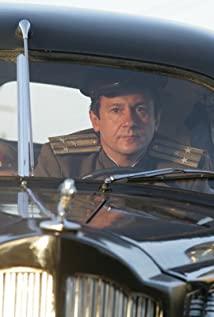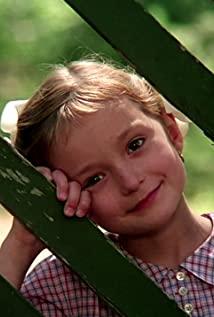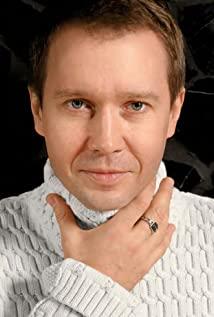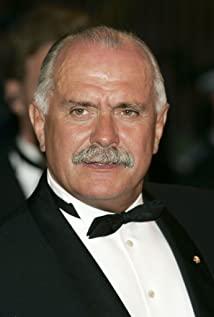Families in a tragic history
. Movies about totalitarian politics. I have seen some movies before. Using a family’s changing circumstances to reflect the joys and sorrows of the entire era is a commonly used method for films that are prone to epic and more acceptable to audiences. Foreign countries such as "Goodbye Lenin" and "The Road to Freedom", and domestic images such as "A River of Spring Flowing Eastward" are more typical successful examples.
The background of "The Scorching Sun" is the same dark and terrifying Stalin's "Purge" movement in modern human history as the Cultural Revolution. The story is not complicated, especially for us who can find many similar narrative texts in the history of our nation, and even feel familiar. Let me briefly introduce the relationship and plot of the characters: the main characters supporting the entire narrative are three people: Red Army General Kotov, Kotov's wife Marusa, Marusa's childhood sweetheart, the former lover of the fallen aristocrat Midya. A typical "revolutionary" period story was born: Midya reappeared after being missing for 12 years, breaking the peace and tranquility of the general’s family vacation. The old entanglement and mutual blame between him and Marusa have made the terrible truth hidden for many years. Surfaced-it was Kotov's manipulation that made Midya abandon her home and leave Ai to go away. And the most mysterious and ugly part gradually became clear with the depth of the plot, that is the true identity of Midya and the real reason for his reappearance: Back then, Kotov sent him to be an intelligence officer, but he did not know that Midya This trip was to arrest Kotov as a secret police-in 1936, it was the eve of the purge within Stalin's party.
Unlike "Spring in a Small Town", which also depicts the subtle relationship between a woman, two men and three people, this film also shows the normality of many other members of the family—Marousa’s family: immersion in the relationship between the characters. The grandma, who recalled the past life and constantly recalled the music of "before liberation", was re-educated and still insisted that "at the beginning of man, the goodness of nature is the basis of the law, even the Roman law is like this", caught in the Russian tradition. Intellectual uncles, scholarly aunts between culture and New Marxist-Leninist culture... The foundation of this family is the Russian aristocratic intellectual style. From these characters, we can clearly see the distinction between before and after 1917 and the changes in people's lives. . Many actions and details are obscure and allegorical: Grandma carefully poured the medicines brought back from abroad before 1917 into the river, "because they have expired"; the "cherry orchard" in the uncle's mouth is based on Chekhov Zhiguchi talks about the sense of dislocation of intellectuals.
Second, the dramatic tension of loose and tight
behind, the calm pavement of the long sweet family life in front, and the violent changes that are late at the end of the film, form the most stark contrast. The strong dramatic tension makes people think about the root of tragedy in a strong shock and shock.
The film focuses on the "sweet" life of the Kotov family, with the exception of a side of the current situation of Midya in the opening prologue, and the tragic ending at the end, which takes up a lot of space. In terms of major events, this family life is a process of calm—breaking the calm—restoring the calm—breaking the calm again, and ending with a tragedy. The beginning of the family bathing section is about to take a vacation. The family of three will be full of joy. The general’s rescue of the villagers’ wheat field shows his strength and position in the army, the country, and the people, and the audience has a sense of identification with it. In the 30th minute, Midya arrives and continues the joyous tone of the film in an extremely comical way; the reunited family talks about the old days, visits relatives and dances, and enjoys it all. The subtle relationship between the three is expressed by the eyes of the actors and the guidance of the depth-of-field lens. The daughter’s innocence and romance also played a role in threading needles and cleverly resolving contradictions. Sometimes the idle pen that seemed to be gagging was really clever; by the 82nd minute, the wife who understood the truth was out of control and the two quarreled, but the husband’s gentle and realistic It was difficult to change and allowed them to reconcile quickly. The family life repeats calm. In the 105th minute, the general and Midya clashed head-on, condemning each other's guilt, but the common love for their family and daughter made them reach an agreement even so, and strive to maintain In the calm before the storm, the general lowered his body and quietly got into the car when the police arrived. Until the final climax-the car that captured the general finally arrived, the unknown daughter and family innocently expressed friendship to them. The well-dressed general and the police shook hands one by one, and the grandmother sang under the command of Midya. With lyrical songs, the gagging general hid his sadness in his heart and brought the last joy to his family-they always believed that he would go home after attending the meeting. The family’s harmonious kiss goodbye under the panoramic deep-focus surround lens and the sweating, confusing and confused policemen under the overhead close-up are in sharp contrast.
The warmth passage ended completely with the end of the soothing music after the daughter got off the car. It happened in the back seat of the car, and the sudden violent group fight was particularly thrilling. The incomplete composition of the camera shows only the fists and hideous faces of the police officers, combined with the hoarse fighting sounds and the dumbfounded look of the driver watching from the depths of the camera, the naked violence and horror are displayed in front of the audience. If this shows the physical horror, then the next is a deeper spiritual horror, enough to make people horrified: when the hot air balloon with the huge portrait of Stalin rises, the victims of the past, the privilege of today Shimidia involuntarily convulsed her right hand in a salute, her face was distorted, and her eyes couldn't tell whether it was sadness or despair or tame viciousness. This is one of my most memorable scenes in the movie. Every time I recall it, I am deeply moved by the fear that goes deep into my bones.
Similar to this, the World War II soldier who has become an amnestic tramp in "The Long Farewell" heard his fiancé calling his name, and suddenly stopped, turned around heavily, and raised his hands unusually slowly, like a sentenced to death. Prisoners of... These details are the magical touch of the movie, which depicts the secret inner world of human beings in a minimalist and precise manner.
Between the three possibilities and the impossible-
I have been thinking about the individual 's choice in history. Is the individual really a choice in history? At first I thought that individual lives can only be ruthlessly run over by historical machines and turned into cannon fodder. There is no more choice. But after reading many works that talk about the relationship between the two, and thinking carefully, it is not entirely true. Take the general as an example. His being arrested and murdered on charges of espionage was indeed wronged and violated basic humanitarian laws. However, he did use his power to force another citizen to become an intelligence agent and snatch his lover; his other comrades were taken away by Stalin. When the gang convicted and murdered, he remained silent again. After all, he is a vested interest under the illegal system. And Midya, he did suffer first, "You took everything from me, my life, my profession, my love, my motherland, my faith..." But Kotov asked, "Who Forcing you? Is this why you come back? Come to enjoy and rejoice in pain?" In other words, "There is no so-called forced, everyone has the opportunity to choose, as long as you are willing to pay for it!"
As my favorite well-known Liu Yu said, "Everyone has the opportunity to choose." As small as this film, no one is truly innocent. "The twelve years of spy life has made Midya become the system itself." His hands are already covered with blood that has been cleansed illegally. The realization of his dream of "going home" depends on It is the sacrifice of other innocent lives; the general himself is the benefit holder of the evil system, "even his family is not innocent, it is their silence for more than ten years that makes this system stronger and stronger." From a rational point of view, just like After the fall of the Berlin Wall, Judge Seidel said, “As a sound-minded person, you have the right to raise the muzzle by one centimeter at that time. This is a duty of conscience that you should take the initiative to assume.” Individuals in each system Both have "the right to the muzzle down one centimeter." But Hannah in "The Reader" failed to do it, and the general and Midya in the film did not do it. Whenever this issue is involved, I want to put myself in their position and think about how I would choose, but it is really too difficult. For individuals in history, rationally, we ask them to wisely and bravely assume the obligations that they should bear as common-sense people and citizens, but emotionally, we still hope to be more compassionate and understand their difficulties.
Four images: fireball and lost driver.
In the movie, the fireball "hullah" moves past the scene in the picture. There are two impressions.
For the first time, in the 80th minute, Midya told the little girl a "fairy tale" about the good life in his previous home and the helplessness to be forced to leave home. Seeing pictures of traces of old life, disappeared in the woods. I think this implies that the totalitarian system has destroyed their normal lives. The homeland, traditional culture, spiritual beliefs of the Russian people, and even the entire Russian land have been burned and destroyed.
At the end of the film, after Midya committed suicide, the flaming ball shone on the music score on the piano in the room, and finally disappeared behind the tall building with a red star on top of the window. He took home as the sole purpose of living, but found that all his beliefs had long since collapsed and his homeland had been destroyed. He was no longer the self in memory. Under the barren system, the distorted self could only be sacrificed.
There is also a melody that appears many times in the opening and in the film: "The scorching sun in the sky, the crimson sea is endlessly rushing... at dawn you tell me that your love for me is no longer. There is no pain in my heart, but Clutched by fear. In the soft morning light, you took away tomorrow. Let us forget about it, things shouldn’t be like this. I think it’s our common fault.” It’s about love, and it’s about people under totalitarian politics. The whole life. Yes, "This is our common fault." I think this is the reason why this movie is more worth watching and making people think about.
Finally, express my best wishes: I hope that there will never be a third poisonous sun in the world, and there will be no more soil on which the poisonous sun depends.
View more about Burnt by the Sun reviews











